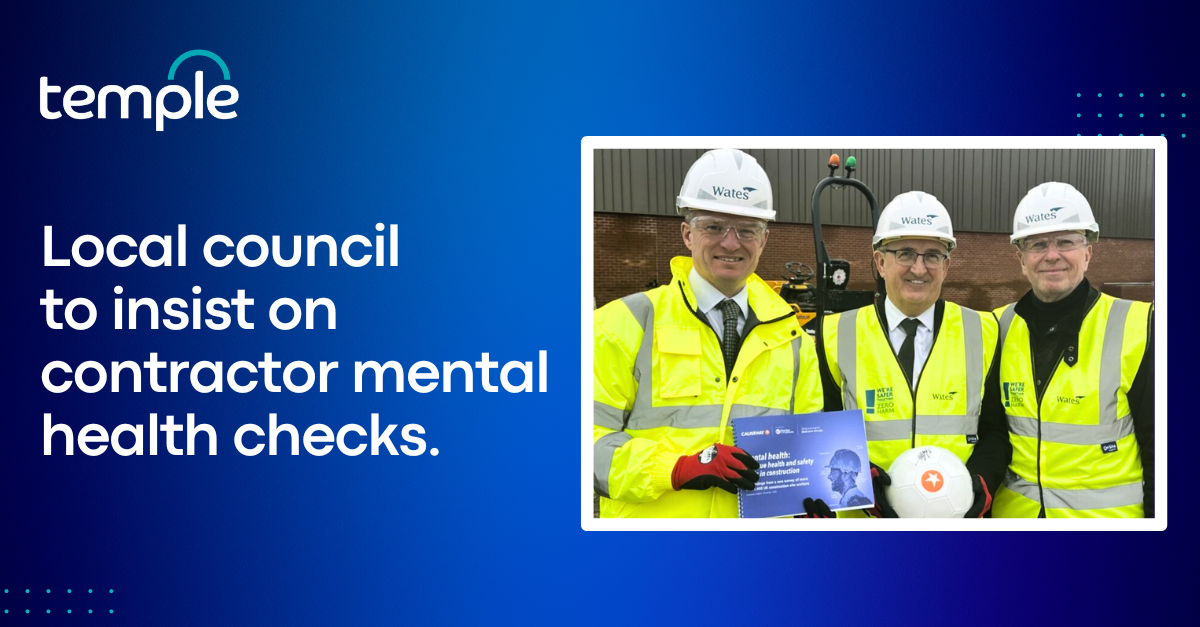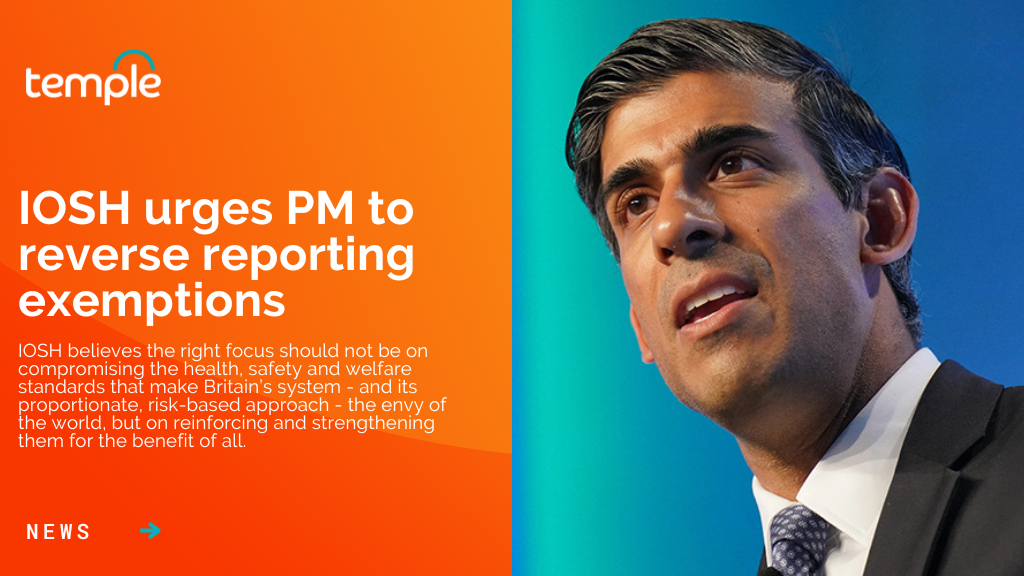
Local council to insist on contractor mental health checks
Construction Enquirer report that Halton Borough Council is now insisting that all main contractors bidding to win work from it have to “include a scored

IOSH chief executive Vanessa Hardwood-Whitcher has written the UK’s Prime Minister, Rishi Sunak, to urge him to reverse a decision made by his predecessor to exempt about 40,000 businesses from reporting requirements and regulations.
Former PM Liz Truss announced plans to widen exemptions which apply to the smallest of businesses to those with fewer than 500 employees.
It was claimed that it would free 40,000 businesses from future bureaucracy, however Vanessa made it clear in her letter that it would be a backward step, adding it risks increasing costs (direct and indirect) from occupational injuries, ill-health and damages that will inhibit growth in the long term.
In this increasingly uncertain labour market, IOSH believes the right focus should not be on compromising the health, safety and welfare standards that make Britain’s system – and its proportionate, risk-based approach – the envy of the world, but on reinforcing and strengthening them for the benefit of all.
ANY FAILURE TO ACT ON THESE KEY AREAS FOR ACTION AND ASSOCIATED CHALLENGES WILL NOT ONLY LEAD TO POORER WORK, WORKING CONDITIONS AND WORKERS’ WELFARE BUT ALSO A WORKFORCE THAT’S CHARACTERISED BY LOW PRODUCTIVITY, WITH ECONOMIC AND STRUCTURAL INEQUALITIES
Highlighting the significant progress in UK OSH standards over the past half century since the 1972 Roben’s report, Vanessa said this has recently stalled and goes on to say that a failure to reverse the decision could lead to ‘a race to the bottom that disadvantages everyone’.
She added: ‘We call on your government to reverse this decision. Now is the time to invest in new ways of valuing and protecting all our workforce and our supply chains, and decent work, which is something that can lead to substantial growth.’
The letter closes by saying: ‘Any failure to act on these key areas for action and associated challenges will not only lead to poorer work, working conditions and workers’ welfare but also a workforce that’s characterised by low productivity, with economic and structural inequalities.
‘This is why we look forward to working with you and your new government – to ensure this does not happen. So that we can all share in a future that is safer innovative and more productive.’

Construction Enquirer report that Halton Borough Council is now insisting that all main contractors bidding to win work from it have to “include a scored

DNV UK’s Business Assurance team, alongside training partner, Temple, hosted their latest ‘Centre of Excellence’ event earlier this month at Cranmore Park in Shirley. This

Redefining Intelligence: The Growth of AI Among Small Firms, highlights that while AI excels at recognising patterns at speeds that dwarf human capabilities, it falls

The Chancellor has today (4 March) announced a significant investment package in the UK’s life sciences and manufacturing sectors. £92 million joint government and industry